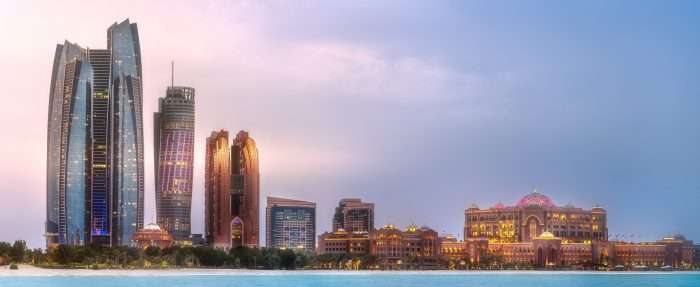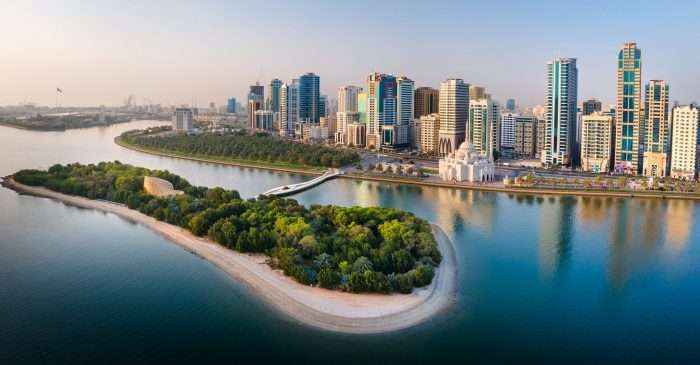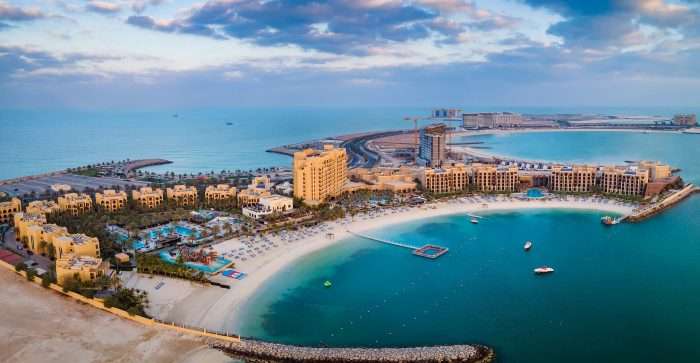Abu Dhabi’s Real Estate Market: A Comparison with Other Emirates in the UAE

Abu Dhabi, the capital city of the United Arab Emirates (UAE), boasts a thriving real estate market that attracts local and international investors alike.
However, when considering real estate investments in the UAE, it’s essential to understand how Abu Dhabi compares to other emirates in terms of market dynamics, investment opportunities and potential returns.
Dubai: The Cosmopolitan Hub
- Dubai’s real estate market is known for its glitz and glamour, offering a wide range of luxury residential and commercial properties. It attracts investors with its iconic landmarks, such as the Burj Khalifa and Palm Jumeirah.
- Dubai’s real estate sector is highly developed which features a variety of freehold properties and numerous off-plan projects.

- The city’s dynamic economy, tourism attractions and vibrant lifestyle make it an appealing choice for investors seeking high rental yields and potential capital appreciation.
Sharjah: Affordability and Cultural Heritage
- Sharjah stands out as an affordable alternative to the neighboring emirates, offering a more affordable real estate market with a focus on family-friendly communities.
- The emirate prioritizes cultural heritage and promotes a more traditional lifestyle.

- Sharjah’s real estate sector features a mix of residential properties, including villas, townhouses and apartments.
- It appeals to investors looking for a balance between affordability, community living, and preserving cultural values.
Ajman: Emerging Investment Destination
- Ajman is an emerging emirate that presents attractive investment opportunities. It offers a growing real estate market with competitive prices and a range of affordable properties.
- Ajman’s strategic location, proximity to Dubai, and development projects, such as the Ajman Marina and City Centre, make it an intriguing option for investors seeking potential capital appreciation and long-term growth.

- The emirate’s focus on sustainable development and infrastructure enhancements further contribute to its investment appeal.
Ras Al Khaimah: Natural Beauty and Leisure Opportunities
- Ras Al Khaimah (RAK) is known for its natural beauty, stunning mountains, and pristine beaches.
- The emirate’s real estate market has gained attention for its luxury resorts, beachfront properties, and golf communities.

- RAK offers a more relaxed lifestyle, making it an ideal choice for investors seeking leisure and tourism-related opportunities.
- With ongoing infrastructure projects like the Ras Al Khaimah International Airport and Al Marjan Island, the emirate demonstrates a commitment to attracting both tourists and investors.
Fujairah: Tranquility and Tourism Potential
- Fujairah, located on the east coast of the UAE, offers a tranquil environment and natural beauty with its mountains and coastline. The emirate focuses on sustainable development and ecotourism, positioning itself as a tourism destination.
- Fujairah’s real estate market features a mix of residential and hospitality properties, catering to both residents and tourists.
- Investors seeking opportunities in a serene setting with potential for future tourism growth may find Fujairah appealing.

Each emirate in the UAE has its unique characteristics and advantages in the real estate market. Abu Dhabi, with its status as the capital city, offers stability, a diverse range of investment opportunities, and strong rental yields.
Dubai shines with its cosmopolitan lifestyle and iconic projects, attracting investors seeking high returns. Sharjah, Ajman, Ras Al Khaimah, and Fujairah each offer their own appeal, be it affordability, emerging opportunities, natural beauty, or tourism potential.
When considering real estate investments in the UAE, it’s crucial to carefully evaluate each emirate’s market dynamics, potential returns, and your investment goals to make an informed decision.
By understanding the unique characteristics and offerings of Abu Dhabi’s real estate market compared to other emirates in the UAE, investors can identify the most suitable opportunities that align with their investment strategies and long-term goals.





